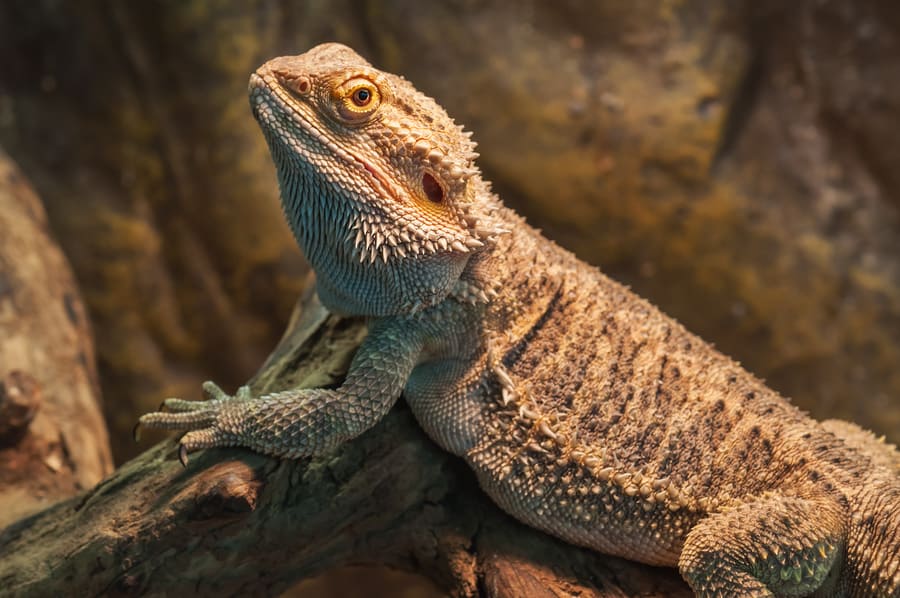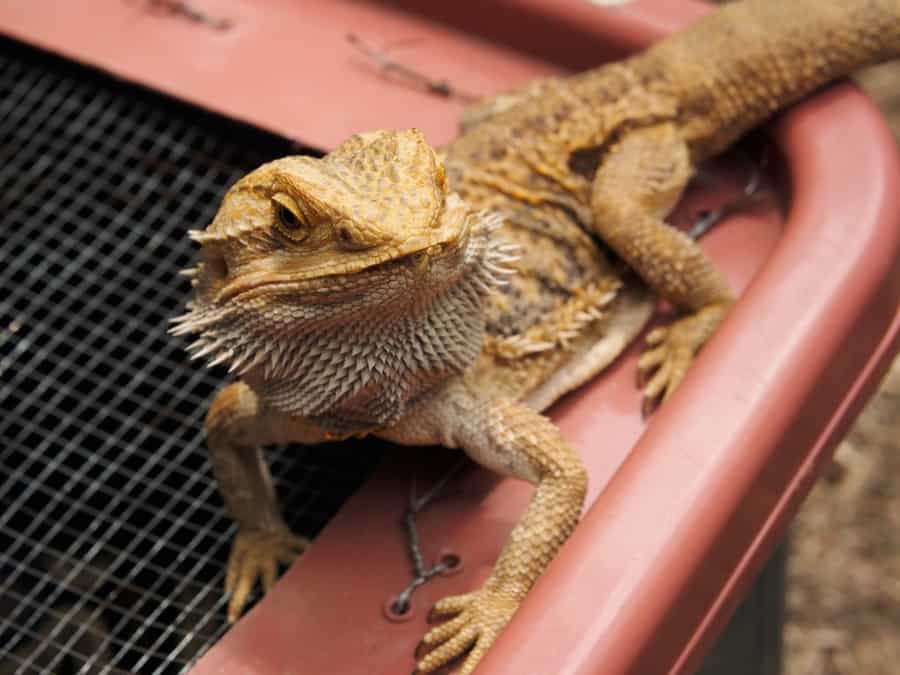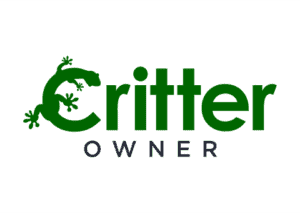
Owning a bearded dragon can be a lot of guesswork until you understand his or her needs and habits. Feeding your little monster can seem like the trickiest thing, especially when you want to ensure you are not overfeeding them.
A bearded dragon can be overfed and may not possess the self-control to stop when it has had enough. This is especially true of young bearded dragons and it can result in illness, constipation, and even temporary paralysis of the hind limbs.
In this article, I want to fully explain why you should regulate the amount of feed provided to your bearded dragon. I also want to explain the proper amount and frequency needed to keep your bearded dragon happy and healthy long-term.
Bearded Dragon Feeding Habits
Bearded dragons feed on both plant and animal-based food. They are of the omnivore family. They are not choosy eaters, particularly. They have strong jaws that help them grind hard-shelled insects and smaller reptiles with ease. Along with their love for eating insects and on occasion – rodents and baby lizards, they tend to enjoy some fresh salad bowls filled with green leafy veggies.
Any animal that is not in the wild, and in captivity need to be fed at the right hours of the day. For bearded dragons, it is best to feed them in the mornings so that they can digest the food in the course of the day.
Simply put, a bearded dragon can be overfed. There are obvious differences between feeding a fully grown bearded dragon and a baby bearded dragon.
What Happens If You Overfeed Bearded Dragons?
Animals tend to eat whatever catches their sight. Bearded dragons are no different. But cold-blooded mammals need a lot of time to eat and digest their food. Their anatomies are simple, but it is essential to keep a track of how much they are eating.
If left unsupervised, baby beardies tend to overeat which can lead to harsh health consequences like indigestion, constipation, pressured spinal nerves, and even paralysis in their hindquarters. Adult beardies generally stop eating when they feel their tummy full. Although it is important to keep in mind that an overfed bearded dragon tends to become lazier.
Signs of Overfeeding
As mentioned before, adult bearded dragons understand when they are full and do not overeat. It is the baby bearded dragons who need pointed supervision. For instance, a baby bearded dragon should not be fed insects bigger than itself or the space between its eyes. Symptoms of overfeeding usually show up in the form of internal injuries such as:
- Lethargy
- Lack of appetite
- Inability to move or control movement,
- Bloated stomach
How Much Should Bearded Dragons Be Fed?
The portion size of bearded dragons depends on their age and sex. While the sex of the breadie doesn’t change the dietary requirements of the animal, age does play a very important factor.
Baby Bearded Dragon Diet
Baby bearded dragons are insectivorous and need to constantly feed on insects to build strength. There is no specific difference for a male or a female baby beardie. All of the proteins and calcium necessary are to be consumed by the babies. Feeding younger dragons with 10-12 insects in a 15-minute period, two to three times per day is essential for their growth. 70% of their total intake should be insects and the remaining 30% can be a plant-based diet.
Baby bearded dragons tend to greedily swallow any insect placed before them, so it is absolutely essential to keep a check on what is being fed to them.
Adult Bearded Dragon Diet
The age of an adult bearded dragon is usually 6 months, some species take a little longer to mature. As they grow, they become herbivorous and do not need constant insect feeds. They can be fed insects once a day, and the ratio of insects to greens changes to 30-70 as they grow.
When overfed, adult bearded dragons gain weight and become more and more lethargic. While it is essential to feed them enough to keep them healthy, you also need to check on the amount of food consumed to avoid the aforementioned side-effects.
Insects vs. Plant Food
It is essential to know what food is nutritious and healthy for bearded dragons. Throughout their lifecycle, the food quantity and quality matter. There are specific portions of nutrients that these reptiles need to be eating at specific ages.
Insects
Baby beardies demand to eat more insects than adults. It is vital to have knowledge about which type of insect is beneficial to your bearded dragon.
Their favorite insects are cockroaches, crickets, earthworms, locusts, butter worms, redworms, and super worms. Protein-filled foods like mealworms, waxworms, etc. can take care of their nutritional needs.
Caution: Never feed them with insects caught in and around homes. They can be infected with parasites and pesticides which can potentially cause harm to bearded dragons.
Plants
Vegetables should make up 25 percent of a baby bearded dragon’s food and at least 50 percent of an adult bearded dragon’s food. A plant-based diet such as squash, colorful veggies like collard greens, bell peppers, mustard greens, and seedless watermelon bodes well for a bearded dragon.
Bearded dragons will eat most greens and veggies raw, but if the vegetables are too hard, cooking them will help make the veggies moist and soft for your bearded dragon to eat.
For a complete breakdown of feeding box turtles, please check out this helpful article I wrote.
Hydration
Since bearded dragons’ habitats are dry and warm, they are acclimated to survive on very little water. Hence, it is of utmost importance for them to stay hydrated. Most of the hydration happens through vegetables and plants. It is smart to ensure that the dragon receives enough water in a bowl once or twice a day.

Vitamins & Minerals
Using a calcium supplement twice a week is recommended by veterinarians.
Vitamins and Minerals like D3, calcium, iron, and phosphorus are necessary. These help in building their bone strength (especially for baby and pregnant bearded dragons). More vitamins and minerals in their diet, the stronger their bones will be.
Amounts of vitamins and minerals vary by age. A baby bearded dragon needs help with building stronger bones and muscles. Hence, taking them every day will benefit them. A younger bearded dragon needs to be able to maintain the bones to their adult age and thus, require intake of vitamins 3 or 4 times a week.
Don’t Feed Bearded Dragons These Foods
For a healthy and active bearded dragon, one must keep an eye on its diet so it does not go overboard. Some foods can cause harm to them proving fatal, too.
- Veggies like lettuce, spinach are harmful because of their excessive water content. Spinach is hard for them to digest.
- Insects caught at home can be dangerous making the dragon ill or sick because of their exposure to parasites and pesticides.
- It is said that avocados can prove to be toxic for these reptiles too.
- Plants like Wild Daffodil, Iris, Ivy, Juniper, Mistletoe, Oak, Poison Ivy, Poison Oak, Poison Sumac, Tobacco, etc. are poisonous and should never be fed to bearded dragons.
- For baby bearded dragons, larger insects are a big no.
How Many Times Per Day to Feed Them?
Bearded Dragons should be fed 3-4 times per day and given as many insects as they consume within 10 to 15 mins. A younger bearded dragon can consume up to 30 to 40 insects each day. Adults will consume more greens than insects, fresh greens should be fed twice-thrice daily. It is optimum to feed them 3 to 5 worms along with greens, thrice a week.
Bearded Dragons & Overeating
Yes, they are easy to care for and therefore are one of the most popular pets acquired by reptile lovers. However, feeding them must be done with professional guidance, precision, and care, as overfeeding can result in illness, injury, and even death.
Overeating leads to obesity in reptiles very quickly. According to an animal specialist, bearded dragons left in the wild are always on the hunt for food resulting in indigestion easily. But the ones in captivity or as pets, have ready food access which predisposes to obesity causing health issues.
Baby and younger bearded dragons being fed excessive calories will grow rapidly causing their lifespan to shorten. In adult bearded dragons, it is quite natural that obesity might prove fatal if there is no reduction of food. Bearded dragons do get sick from overeating. There may be organ dysfunction. In pregnant bearded dragons, there might be egg retention (not being able to provide eggs for fertilization).
Signs of overeating include the tail getting thicker, spine and ribs will not be felt, fatty deposits occur between their arms causing them to bulge, and swollen abdomen are the most common signs of an overeating bearded dragon.
